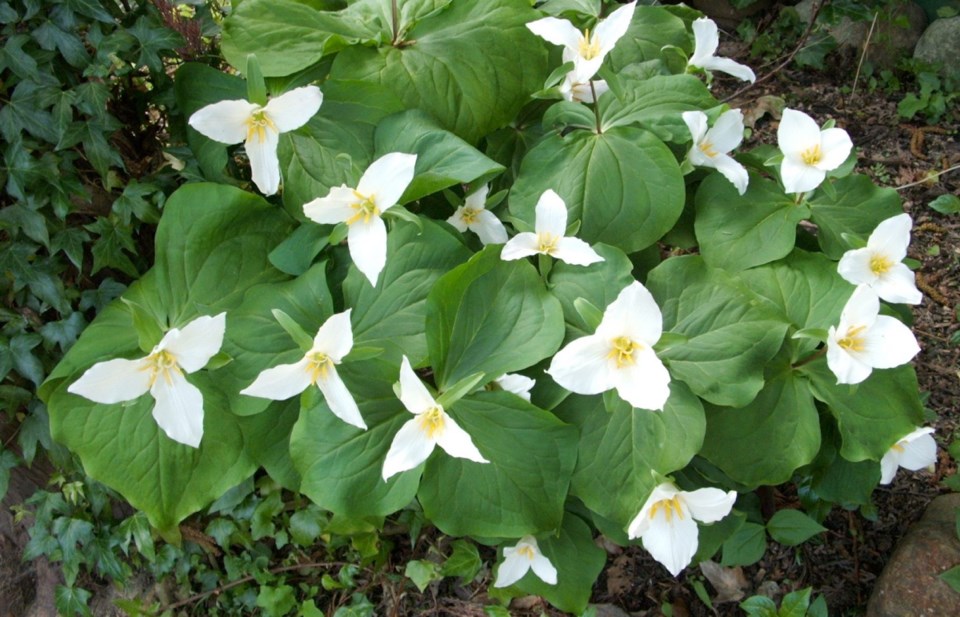Not long after I started writing these garden columns, I began receiving newly published books to review. One of the first was a reference I have used many times over the years. Now, a third edition of that publication has just been published, with significant updates and a brilliantly colourful new look.
Gardening with Native Plants of the Pacific Northwest, by Arthur R. Kruckeburg and Linda Chalker-Scott (Greystone Books, 432 pages, paperback, $40).
This pleasing, useful guide to incorporating native plants into our landscapes has been published in timely fashion, as gardens face increasingly variable and rapidly changing weather conditions and extended periods of drought. Among our region’s native species are some of the toughest and most enduring of plants.
As with the first publication, this newly revised and updated edition focuses mainly on the plants, with chapters on native trees, shrubs, perennials, grasses, and annuals. In the first edition, Arthur Kruckeberg presented around 250 of his favourite native plants. The 2019 version includes over 900.
The most visually obvious update is the introduction of all-colour photos to illustrate the entries. The new edition also adds several chapters highlighting the effects of climate change on the distribution of plants, the latest scientific information on soil management and planting procedures, and the care of new transplants.
Readers will find in these pages many common and well-known native plants and probably more that are unfamiliar. I’ve taken to flipping through the pages and stopping to introduce myself to previously unknown beauties like the many native phlox and iris species.
It’s an ideal time to acquire a colour directory to our native plants, just as many have been blooming. The book arrived a few weeks ago, as red huckleberry bushes scattered throughout the back garden were opening their rosy buds. Their small, coral-red berries are a fall and winter favourite of the birds. A red-flowering currant was blooming too.
Patches of Pacific trillium blooming in wooded areas have been a special treat after the harsh late winter weather. My original planting was a gift from old friends. I recall clearly the day that Joyce and Bill rounded the back corner of the house, each holding a handle of a large tub of trillium plants.
Their son was working on a road clearing crew when he spotted the trilliums growing ahead of the machinery. To save them, he dug them up and brought the plants home. What he did is echoed in the book’s entry on trillium: “Only when trilliums really need rescuing should they be transplanted.” The authors add that “it is a shame to dig them, especially since they grow readily from seeds.”
I found that out when I noticed a ripe seed capsule in the original planting, and distributed the seeds at the base of a tree in another wooded area. Those seeds easily produced another lovely patch of trilliums.
On the subject of acquiring native plants, the authors warn against collecting or propagating from plants in the wild. “It’s a better ethical and ecological choice to purchase native plants from reputable nurseries that have propagated and cultivated their plants without endangering native populations.”
Leafing through the colourful pages of this extensive and timely guide is an eye-opener onto the many, varied points of interest and charm that native plants can bring to gardens.
Kruckeger’s vision, expressed in a previous edition of the book, is even more important and applicable today: “Pacific Northwest natives can satisfy aesthetically, practically, and ecologically; grow and enjoy them. Whether you ‘go native’ all the way or mix natives with plants from other lands, you can expect pleasure from the beauty that natives can bring to your garden.”
Send your gardening questions to Helen Chesnut at hchesnut@bcsupernet.com and she will try to incorporate them into a column whenever possible.
GARDEN EVENTS
Rhododendron sale. The Victoria Rhododendron Society will hold a plant sale on Sunday, from 10 a.m. to 2 p.m. at 5008 Old West Saanich Rd.
Rose meeting. The Mid Island Rose Society will meet on Monday from 6 to 8 p.m. in the North Nanaimo Library, 6250 Hammond Bay Rd. Call 250-390-2805.
Comox meeting. The Comox Valley Horticultural Society will meet Monday from 6:30 to 8:30 p.m. in the Florence Filberg Centre, 411 Anderton Ave. in Courtenay. Dr. Staffan Lindgren, an entomologist, will present Pollinators in Your Garden — Not Just Bees. Non-member drop-in fee $5.
Garden sharing. People who do not have a place for gardening and those with space to share re invited to register with the Victoria Horticultural Society’s garden sharing program at gardensharing@vichortsociety.org.



